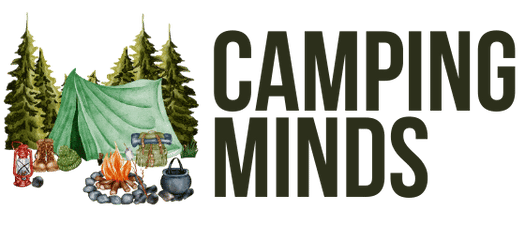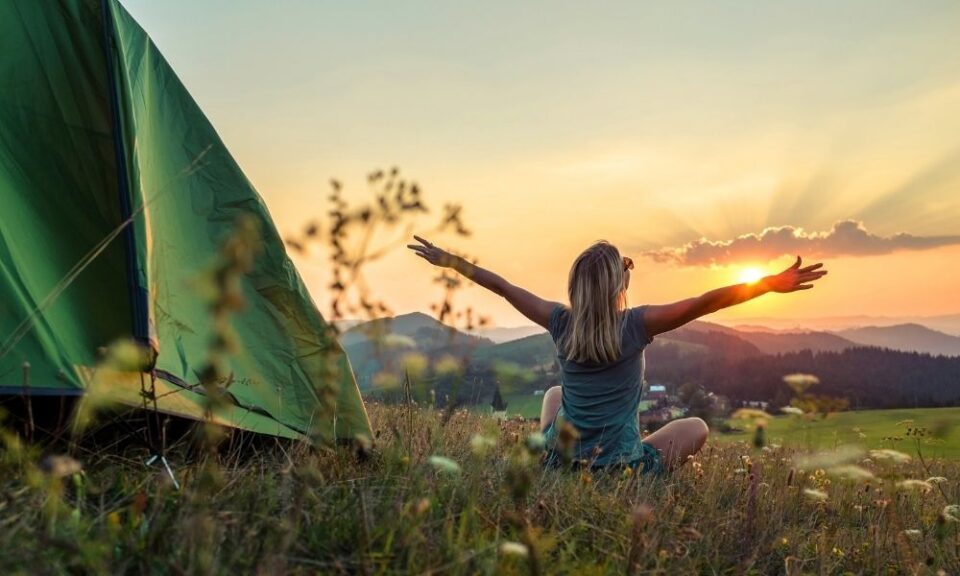Thinking about planning your first solo camping trip? Here’s everything you need to know to make it a success. Whether you’re excited or nervous, solo camping is an incredible experience if you’re well-prepared. From packing efficiently to ensuring your safety, there are several key things to plan before you embark on your adventure.
Below, I’ve shared important tips to help you confidently organize and finally go on that solo camping trip you’ve been dreaming about. Let’s dive into the details!
3 Key Tips for a Successful Solo Camping Trip
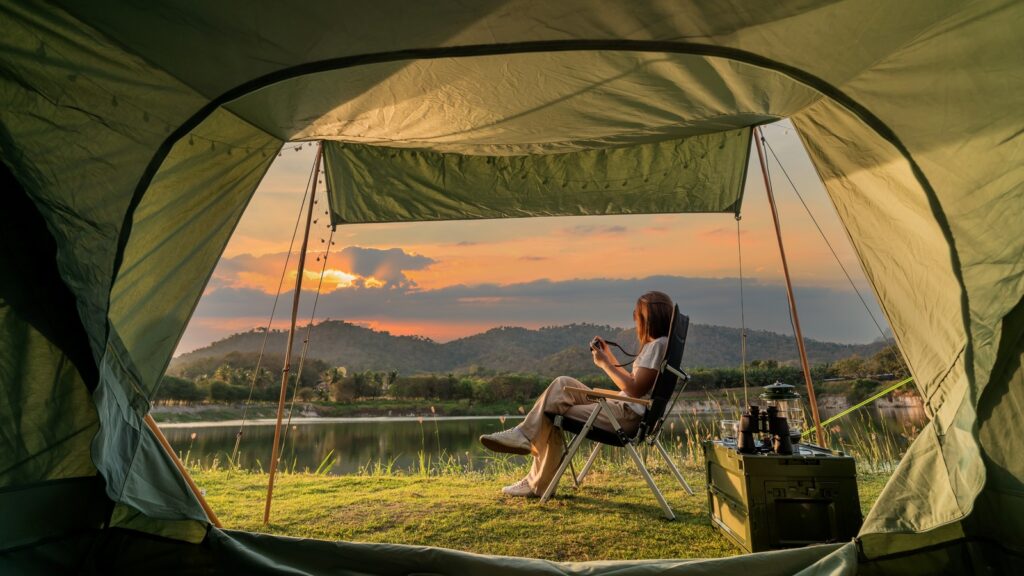
1. Travel Light:
When camping alone, less is more. Pack only what you can easily carry and set up by yourself. Ensure you can handle your equipment without assistance, as this will make your camping experience smoother and more enjoyable.
2. Check for Phone Reception:
Make sure there’s phone coverage at the campsite so you can stay connected. It’s important to notify friends or family upon your arrival for safety reasons, especially if you’re camping in a more remote location.
3. Check Campsite Facilities:
Familiarize yourself with the amenities available at the campsite. Some places may have picnic tables, barbecues, or communal areas, which can minimize what you need to bring. This will help streamline your packing list.
The key to solo camping is being efficient with your gear. Plan ahead, pack light, and be organized. If you’re unsure of what to pack, here’s a helpful guide for minimal weekend camping essentials.
Tent Set-Up Tips
Your tent should be easy to set up on your own. Practice setting it up at home before heading out to ensure you know how to both assemble and disassemble it. This will save time and reduce frustration at the campsite.
Facilities to Look for at Campsites
Most campsites provide useful facilities such as picnic tables and BBQ areas. If you choose a site with these amenities, you can skip bringing items like tables or chairs. These conveniences make solo camping even more enjoyable.
Phone Coverage Considerations
Use apps like WikiCamps or check your phone provider’s coverage map to confirm reception at your campsite. If you’ll be out of range, inform a trusted contact of your planned arrival and departure times. Take note of any suspicious activity or vehicles for added safety.
Essential Camping Gear
- Pillow
- Sleeping bag
- Headlamp or lantern
- Tent
- Mattress
- Cooking equipment (gas or butane stove)
- Chair
- Water and food supplies
- Power pack
Make a detailed plan for meals, bringing only what’s necessary in terms of food and cooking gear. Minimalism will help keep your camping trip efficient and enjoyable.
Solo Camping Safety Tips
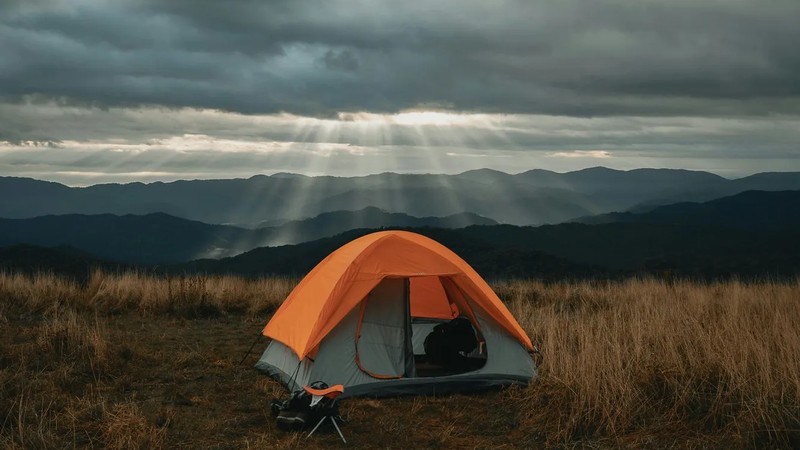
Camping solo can be an empowering experience, but safety is paramount. Choose a campsite that isn’t too isolated if you’re feeling uncertain about being alone. When chatting with fellow campers, you don’t have to mention that you’re alone. It’s okay to casually refer to a partner or group if it helps you feel more secure.
Trust your intuition. If something feels off—whether it’s a suspicious person or an uncomfortable environment—pack up and move on. Your gut instinct is a powerful tool for keeping you safe.
Always let family or friends know where you are, and check in with them when you arrive and leave your campsite.
Additional Gear for Solo Camping
- Earplugs: Natural night sounds can be unsettling when camping solo. Earplugs can help you relax and get some sleep, as any noises are likely just harmless animals.
- First Aid Kit: A must-have for every camper, especially when going solo.
- Warm Clothes: Even in warmer climates, nights can be colder when you’re alone, so pack extra layers.
Entertainment Ideas
Solo camping offers a great opportunity for personal reflection and activities you enjoy. However, having a plan for how to spend your time is essential to avoid boredom:
- Photography, especially during sunrise or sunset
- Solo card games
- Cooking a more elaborate meal
- Hiking or kayaking
- Reading or drawing
If you have mobile reception, you can also stream a movie or show. The key is to bring something that keeps you engaged and makes your solo trip enjoyable.
Recommended Campsites for Solo Camping (WA)
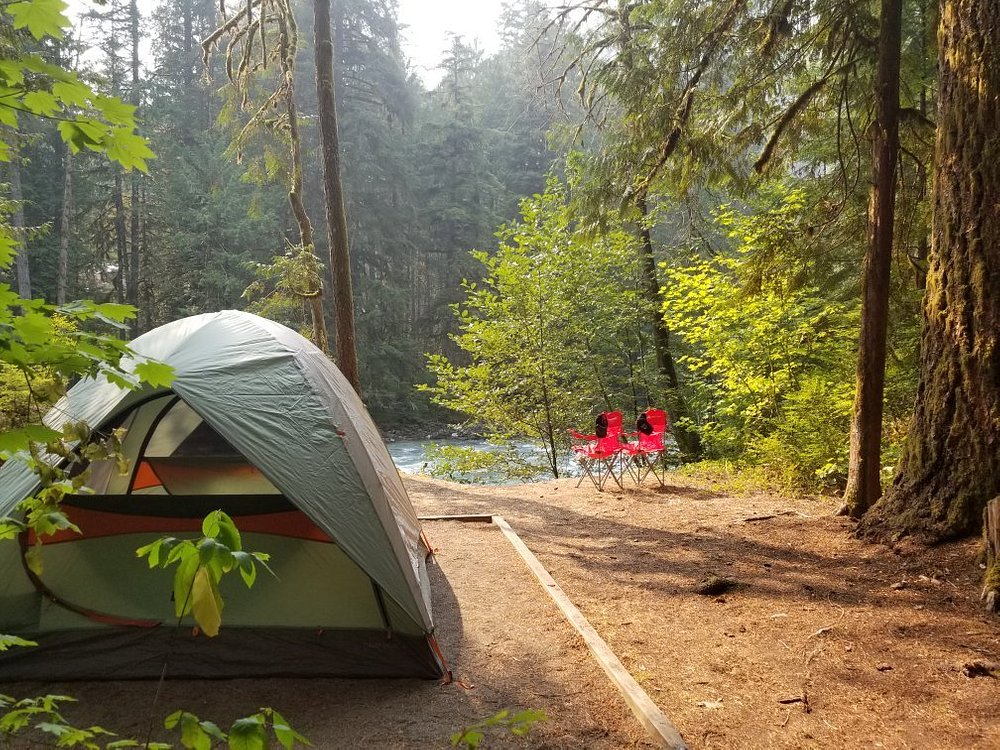
If you’re in Western Australia, here are a few campsites that are great for solo adventurers:
- Wellington National Park (Glencoat or Potters Gorge)
- Fitzgerald River National Park (4 Mile Campsite)
- Lane Pool Reserve, Dwellingup (Tony’s Bend)
- Sandy Cape
- Parry’s Beach
- Logue Brook Dam, Harvey
Conclusion
Solo camping may sound intimidating at first, but it can be an incredibly rewarding experience. It offers a unique opportunity to slow down, enjoy nature, and appreciate your own company. Life can be hectic, and sometimes a solo trip is just what you need to recharge. Whether you’re embarking on this journey because it’s hard to coordinate with friends or simply to enjoy some peace and quiet, don’t let anything stop you from enjoying the adventure.
Embrace the freedom of solo camping, plan carefully, and enjoy the solitude! Check out more camping tips and gear recommendations at CampingMinds to prepare for your next adventure.
